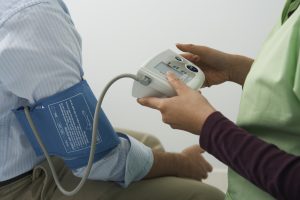 Spikes in blood pressure don’t always require a trip to the hospital, according to new findings. The study comes from the Cleveland Clinic where researchers found that of 60,000 patients with “hypertensive urgency” less than one percent actually required a visit to the emergency room. The rest were treated and sent home with no additional risks to patient outcome.
Spikes in blood pressure don’t always require a trip to the hospital, according to new findings. The study comes from the Cleveland Clinic where researchers found that of 60,000 patients with “hypertensive urgency” less than one percent actually required a visit to the emergency room. The rest were treated and sent home with no additional risks to patient outcome.
The researchers noted, “Hypertensive urgency is common in the outpatient setting. Most patients probably can be safely treated in the outpatient setting, because cardiovascular complications are rare in the short term.”
Advertisement
Dr. Suzanne Steinbaum, who directs Women’s Heart Health, said the study suggests “hypertensive urgency – defined as a blood pressure of at least 180/110 [millimeters of mercury, or mm Hg] – without symptoms or evidence of end organ damage can be managed safely as an outpatient.”
Hypertension may result from organ damage, so doctors may be able to successfully treat organ damage, even temporarily, as a means of lowering blood pressure.
Sending patients to the hospital was associated with greater use of healthcare resources but not necessarily better health outcomes. Many patients still had high blood pressure months after visiting the hospital.
Dr. Howard Selinger, chair of family medicine at the Frank H. Netter M.D. School of Medicine at Quinnipiac University, believes that high blood pressure should still be treated on a case-by-case basis. He concluded, “Not to be confused as a hypertensive urgency is a hypertensive crisis — in which symptoms are already present, such as severe headache, visual changes, chest pains.”
Also, read Bel Marra Health’s article: High blood pressure and vascular calcification risk raised by consuming phosphate-rich foods.
Sources:
http://archinte.jamanetwork.com/article.aspx?articleid=2527389
